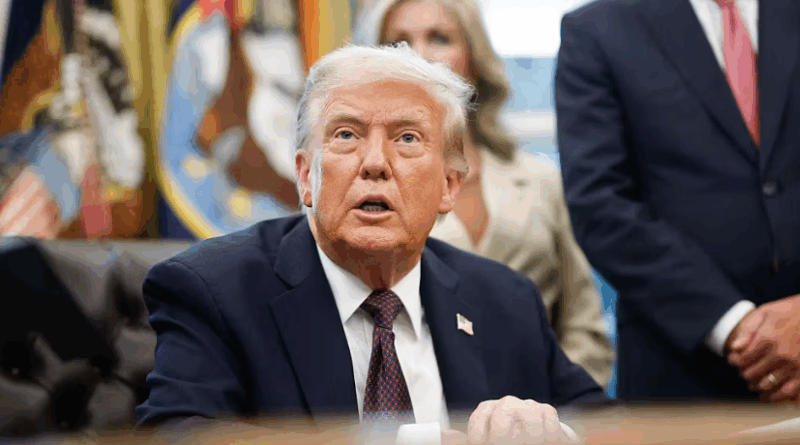Trump Asks Supreme Court To Hear Birthright Citizenship Case
President Donald Trump’s administration on Friday asked the Supreme Court to take up a major case on birthright citizenship, setting up what could become one of the most consequential constitutional fights of his second term.
The Justice Department filed two appeals challenging lower court rulings that blocked Trump’s executive order limiting automatic citizenship for children born in the United States. The president signed the order on his first day back in office in January, making it a central piece of his immigration agenda.
“The lower court’s decisions invalidated a policy of prime importance to the President and his Administration in a manner that undermines our border security,” the Justice Department argued. “Those decisions confer, without lawful justification, the privilege of American citizenship on hundreds of thousands of unqualified people.”
Trump’s order instructed agencies to deny citizenship to children born in the U.S. unless at least one parent is either a citizen or a lawful permanent resident. That directive immediately faced lawsuits claiming it violated the 14th Amendment, which says that anyone born in the United States and “subject to the jurisdiction thereof” is a citizen.
Federal courts in New Hampshire and Washington blocked the policy, with one judge allowing the challenge to proceed as a national class action. The 9th Circuit also ruled against the administration this summer. By appealing both cases, the Justice Department is urging the high court to clarify how broadly lower court judges can block presidential policies.
The administration argues that the 14th Amendment has been misapplied for decades, saying it should not apply to illegal immigrants or foreigners in the U.S. on temporary visas. Officials contend that universal birthright citizenship creates incentives for illegal migration and has led to “birth tourism,” where foreigners travel to America specifically to give birth.
“This policy of automatic birthright citizenship has become one of the most powerful magnets for illegal immigration,” the administration’s filing states.
The justices, who begin their next term October 6, are expected to weigh whether to hear the case quickly. The court, with its 6-3 conservative majority, has sided with Trump’s administration in a string of high-profile immigration cases since his return to office, including rulings on deportations and restrictions on asylum.
On the same day the birthright case was filed, the court also cleared Trump to withhold roughly $4 billion in foreign aid, another victory for the White House as it continues reshaping immigration and foreign policy.

